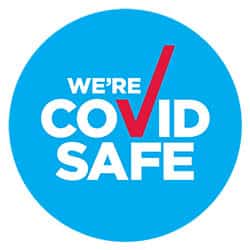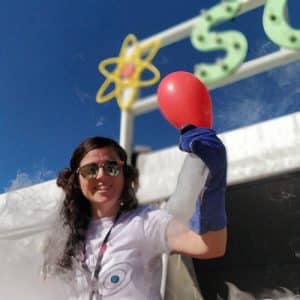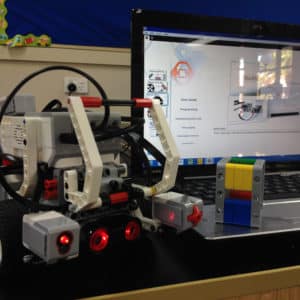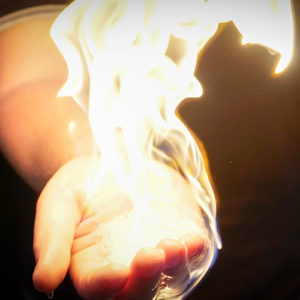https://www.fizzicseducation.com.au/wp-content/uploads/2022/12/Liquid-nitrogen-cloud-1920-x-200px-dark-blue-wash.jpg
Telescope Evening
Investigate the cosmos with a night under the stars
Your students become astronomers with this evening telescope workshop.
Students will discover;
- How to find the south celestial pole
- Constellations of the zodiac and how to identify them
- The Milky Way and Magellanic clouds
- Planetary orbits and ring features
- Surface features of the moon
- Learn about the dynamic nature of astronomy
Working in pairs or threes, students use one of 7 telescopes to observe the night sky as well as have the opportunity to use a motor driven telescope with GPS capabilities.

Australian ACARA Content Outcomes:
Science
Predictable phenomena on Earth, including seasons and eclipses, are caused by the relative positions of the sun, Earth and the moon (ACSSU115)
Earth’s gravity pulls objects towards the centre of the Earth (ACSSU118)
The universe contains features including galaxies, stars and solar systems and the Big Bang theory can be used to explain the origin of the universe (ACSSU188)
Advances in science and emerging sciences and technologies can significantly affect people’s lives, including generating new career opportunities (ACSHE195)
Advances in scientific understanding often rely on developments in technology and technological advances are often linked to scientific discoveries (ACSHE192)
Australian National Curriculum Mapping for all our science workshops & shows
NSW Science & Technology Syllabus Content
A student:
describes the dynamic nature of models, theories and laws in developing scientific understanding of the Earth and solar system SC4-12ES
describes changing ideas about the structure of the Earth and the universe to illustrate how models, theories and laws are refined over time by the scientific community SC5-12ES
appreciates the importance of science in their lives and the role of scientific inquiry in increasing understanding of the world around them SC4-1VA & SC5-1VA.
NSW K – 10 Science Syllabus mapping for all our incursions
Appropriate for Years 7 and 10 with a maximum of 21 students per class.
Access to 1 electrical power socket would be handy.
Duration is variable and organised with our office.
Set up time 45 minutes and pack up time 45 minutes.
Parents should be encouraged to help supervise where possible.
This experience is best run in winter and is usually offered as part of an overnight science visit.
Before booking, check this Moonrise calculator to see the time at which the moon will be above the horizon (this is essential as much of the workshop focuses on the Moon).
During Social Distancing – Contact us
and we’ll tailor a program to suit both your school and the State’s social distancing requirements. Further details here

Did you know about our larger stage shows?
Designed to engage groups of up to 240 students, pair this workshop with one of these school favourites!
Big Science Big Fun
tick tick BOOM!
Destination Moon





















I just wanted to pass on how much the staff and students really enjoyed it and how perfect it was to launch our science week activities. The students were enthralled, educated and entertained – a perfect trifecta!
-Caulfield Grammar School – Big Science Big FunThanks so much for presenting at our school on Monday. Our students enjoyed the show.
-Greenvale Primary School – Big Science Big FunFizzics Education curated a thoughtful and hands-on experience for the children, incorporating practical, skill-based learning activities and followed by a science presentation at the end of the event involving liquid nitrogen. This was delivered safely and effectively, capturing both the children and the parents for the duration of the presentation.
-Macquarie Bank – Family Fun DayFizzics Education ran a show today at our school and it was wonderful. He was a great facilitator and the show was age appropriate and well done.
-Mount Zion Early learning centre – Little Science Big FunI just wanted to pass on how much the staff and students really enjoyed it and how perfect it was to launch our science week activities. The students were enthralled, educated and entertained – a perfect trifecta!
-Caulfield Grammar School – Big Science Big FunThanks so much for presenting at our school on Monday. Our students enjoyed the show.
-Greenvale Primary School – Big Science Big FunFizzics Education curated a thoughtful and hands-on experience for the children, incorporating practical, skill-based learning activities and followed by a science presentation at the end of the event involving liquid nitrogen. This was delivered safely and effectively, capturing both the children and the parents for the duration of the presentation.
-Macquarie Bank – Family Fun DayFizzics Education ran a show today at our school and it was wonderful. He was a great facilitator and the show was age appropriate and well done.
-Mount Zion Early learning centre – Little Science Big Fun